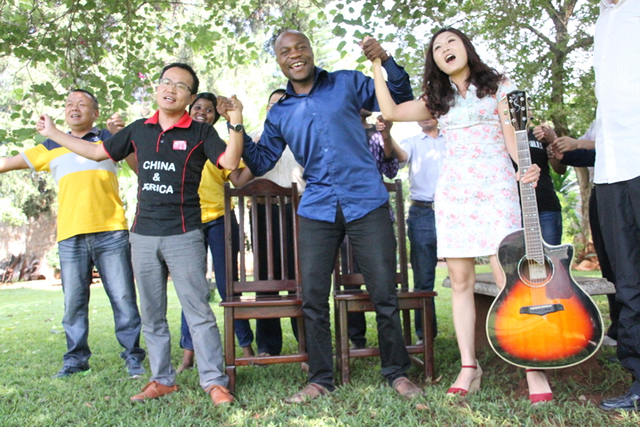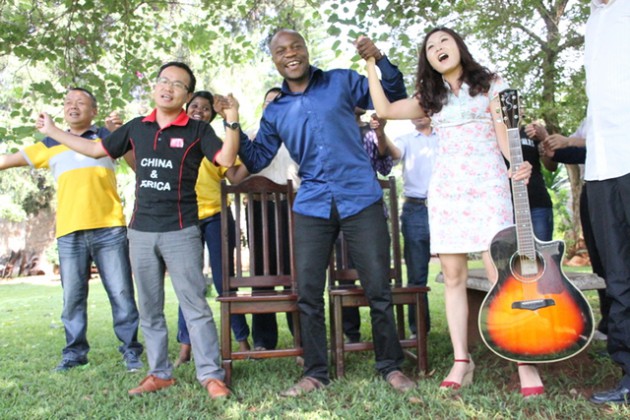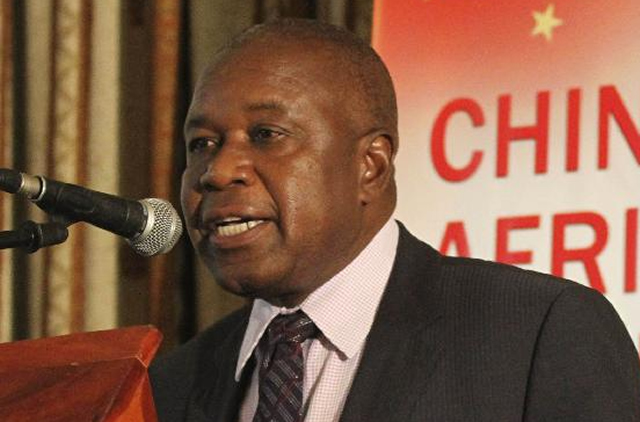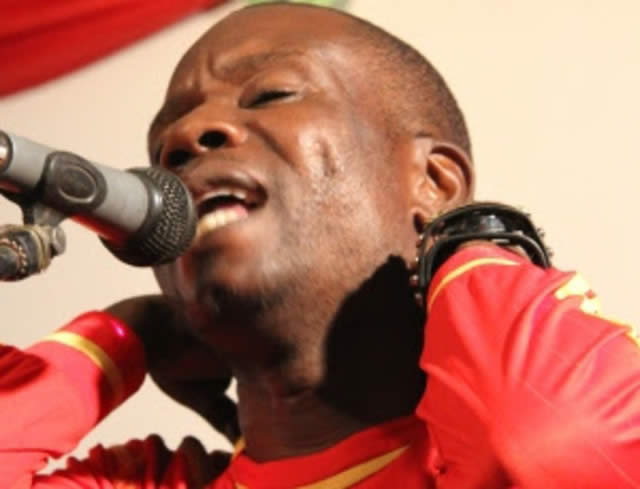Zim, China artistes in solidarity duet

Tendai Mbirimi : Lifestyle Writer
Music, as a universal language, has motivational power that is able to drive life in a desired direction. It also has the ability to foster relations between nations acting as a catalyst in driving forward government policies such as the Look East Policy which seeks to enhance Zim-China relations.Those who lived during the days of Zimbabwe’s struggle for independence can emphatically recount the power of music as far as spreading the good news of the struggles was concerned. Big names such as Thomas Mapfumo and Oliver Mutukudzi quickly come to mind.
Even during the period of the land reform programme in Zimbabwe, music by artistes like Tamabawoga, Brian Muteki and the late minister Eliot Manyika did the magic in communicating to masses that land acquisition was there to stay. The hit jingle, “Rambai makashinga”, was like a national anthem on all radio stations and even children would be heard reciting the song. That is the motivational power of music.
Contrary to this, when Zimbabwe adopted the Look East Policy a decade ago nothing meaningful was done, or is being done to come up with motivational music to boost verve on the part of those spearheading the policy. Artistes today seem to be preoccupied with hate messages, fanning flames of division amongst themselves instead of producing music that will identify them with this noble course.
Abraham Matuka, a Zimbabwean gospel artiste who recently did a duet with Chinese artiste, Han Lin Qing after a tour of China, has taken the initiative to come up with a song that has caused so much noise in the Chinese community living in Zimbabwe.
“As an artiste I believe that it is my duty to support Government policies through music and marry the vision of our leading nationalist without any hesitation or doubt,” said Matuke
Abraham went to China under a three-week programme code-named “Zimbabwe-China Friendship Association” meant to educate Zimbabweans on ways to fight poverty in its various forms. That is when he came up with the idea of doing a song as a way of appreciating what China is doing to Africa as a whole.
The hit track is entitled “China and Africa as One”.
“While I was in China, I was moved by a number of things varying from hospitality, life skills amongst other things, that’s when I then decided to come up with a song which signifies the cordial relationship between Zimbabwe and China, and Africa as a whole,” said Abraham.
“To me music has the power of bringing people together. And as of this song, it’s a dream come true to have collaborated with my Chinese counterparts. In the song we are spreading the message that Africa and China are one, therefore nationals from these two continents must embrace each other not on the business aspect only, but also in the socio-cultural aspect,” he said.
Locally, the song paints a real picture of how the Zimbabwean community has managed to weave itself with the Chinese community. This is evidenced by a number of events that are being done with communities between these two countries and just recently for the first time the Chinese also opened their new year celebrations to locals, a move that cements relationship from a grass root level and builds bridges of friendships.
Still on the societal level, many people have shared knowledge and skills in gardening, farming and the medical front.
Zimbabwe Chinese Business Association executive vice chairperson Ms Carrie LI said music and other cultural exchange programmes are necessary in building relations between the two nations, especially on the aspect of language which stands as a major barrier.
“Though language stands as a major barrier, we need to build bridges of friendships like what Abraham, Han Lin Qing and Lin Hua have done with their music”
“The melody of the beautiful song is ever on our minds and deeply rooted in Chinese art and it brought a feeling that we are home since most of us have been around for more than 20 years and the city is also our city, hence we need to promote each other with more Zimbabweans visiting China and vice versa thereby promoting tourism because with Zimbabwe there has been a lot of bad publicity but we are saying no to that.
“This is not a rubbish country but a beautiful country where we both live under the same sky and share the same dreams and together we can co-operations at social level to bring about positive developments that will even create a better and vibrant future for the coming generations,” she said.








Comments